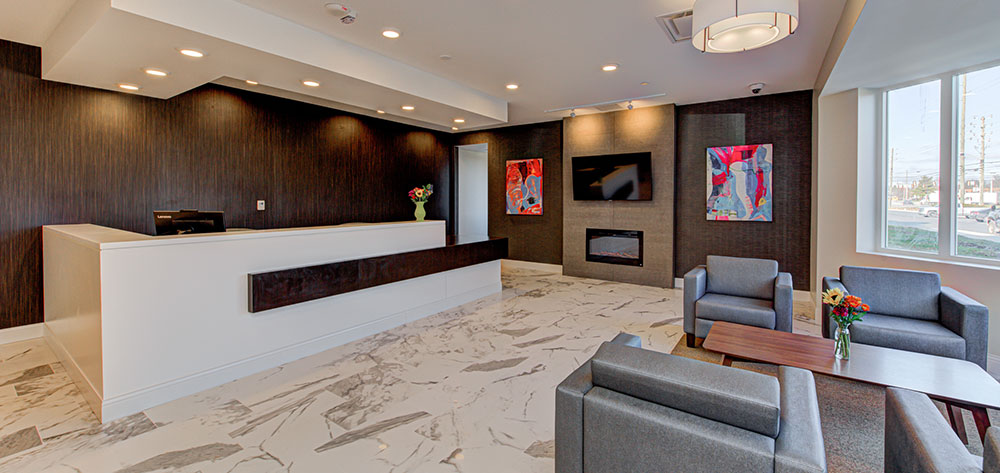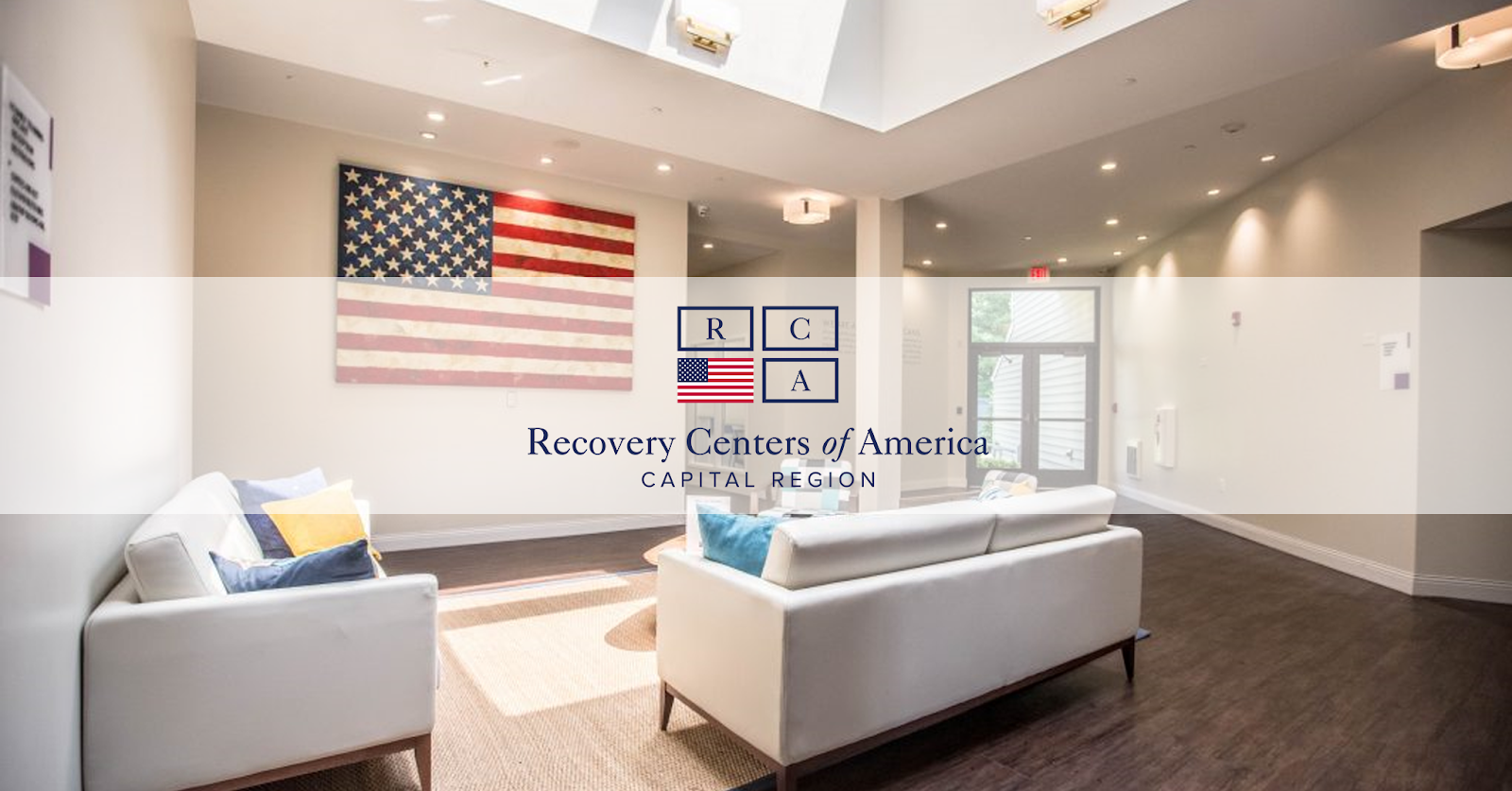Recovery Centers of America at St. Charles

Overview
Recovery Centers of America at St. Charles is an accredited substance abuse treatment center that provides inpatient detoxification, for men between 18 and 65+ years of age. As part of their special programs, Recovery Centers of America at St. Charles treats clients with co-occurring mental and substance use disorders and clients who have experienced trauma. To help patients achieve sobriety, Recovery Centers of America at St. Charles provides treats alcohol detoxification, benzodiazepines detoxification, and cocaine detoxification.. Afterward, patients receive cognitive behavioral therapy, substance use disorder counseling, and trauma-related counseling during treatment. Recovery Centers of America at St. Charles is located in Saint Charles, Illinois, providing treatment for people in Kane County, accepting cash or self-payment and private health insurance.
Recovery Centers of America at St. Charles at a Glance
Payment Options
- Cash or self-payment
- Private health insurance
Assessments
- Screening for tobacco use
- Comprehensive mental health assessment
- Comprehensive substance use assessment
- Outreach to persons in the community
- Screening for mental disorders
Age Groups
- Seniors or older adults
- Young adults
- Adults
Ancillary Services
- Case management service
- Suicide prevention services
- Mental health services
- Social skills development
- Transportation assistance
Accreditations
The Joint Commission:

The Joint Commission accreditation for addiction and behavioral health signifies that a facility has met rigorous standards in patient care, treatment, and safety. This recognition assures patients and professionals of the facility's commitment to providing high-quality, evidence-based care in the fields of addiction and behavioral health, fostering trust and confidence in their services.
Commission on Accreditation of Rehabilitation Facilities (CARF):

CARF accreditation is a prestigious recognition for organizations in rehabilitation and human services. It signifies that an organization meets rigorous quality standards and is committed to providing top-notch care. Achieving CARF accreditation involves a thorough evaluation process, including on-site surveys, to ensure excellence in programs and services. This accreditation boosts an organization's credibility, assures clients and funders of quality, and promotes ongoing improvement in the field of rehabilitation and human services.
Drug Enforcement Agency (DEA):
DEA accreditation refers to the process by which a law enforcement agency is recognized by the Drug Enforcement Agency (DEA) as having met specific training, operational, and resource requirements necessary to participate in DEA-led drug enforcement efforts. This accreditation allows the agency to perform DEA-related tasks such as conducting investigations, executing federal search warrants, and participating in joint task forces.
Treatment At Recovery Centers of America at St. Charles

Conditions Treated
Alcoholism:
Alcohol addiction is a disease that changes the way the brain works. It causes negative emotions, impulsive behavior, cravings and withdrawal symptoms. Treatment for alcohol addiction includes supervised detox, counseling and therapy, and support group participation. Rehabilitation does not cure alcoholism. Instead, it helps the individual manage their addiction, restore their functioning, and well-being.
Mental health treatment:
Mental health treatment involves a range of therapeutic approaches, provided by licensed professionals, to address mental health challenges. It includes psychotherapy, medication, and holistic practices to help individuals manage conditions, improve coping skills, and enhance overall well-being. The goal is to empower individuals to lead fulfilling lives and reduce the stigma surrounding mental health.
Substance use treatment:
Substance abuse treatment programs can help to address addiction and, if relevant, any co-occurring mental health conditions. Programs include outpatient, inpatient, dual-diagnosis, and partial hospitalization. The addict will receive therapies like cognitive behavioral therapy, or dialectical behavioral therapy, and sometimes complementary therapies like acupuncture and mindfulness-based therapy. By attending skills training and recovery groups you’ll build a strong foundation for your recovery and strengthen your support network, increasing your chances of long-term recovery success.
Co-occurring Disorders:
Dual-diagnosis rehabs are usually the appropriate solution to treat co-occurring mental health and substance abuse disorders. These facilities typically employ medical and behavioral experts who use a range of interventions, together with the right healing environment, for you to achieve and sustain long-term recovery. Treatment usually includes evidence-based therapies (like cognitive behavioral therapy), recovery support meetings, 12-step facilitation, psychoeducation, skills training, and group therapy.

Levels Of Care
Hospital inpatient treatment:
Inpatient treatment involves a comprehensive residential therapeutic program where patients stay on-site for a duration typically ranging from 30 to 90 days. This immersive environment offers structured support, ensuring safety and a focus on recovery. Therapies provided include individual and group counseling, cognitive-behavioral therapy, holistic treatments, family therapy sessions, and experiential therapies. The aim is to address addiction or mental health disorders' physical, emotional, and psychological aspects, laying a robust foundation for sustained healing.
Short-term residential:
Short-term residential rehab programs offer intensive, goal-focused treatment for individuals dealing with substance abuse and addiction. Unlike long-term programs, these are shorter in duration, typically lasting a few weeks to a few months. They are ideal for those with time constraints or immediate needs, providing round-the-clock care and counseling to help clients stabilize, develop coping skills, and create a plan for long-term recovery. This approach contrasts with longer programs, which have a more extended timeframe. Short-term residential rehab is tailored to individuals looking for a concentrated and efficient path to recovery.
Residential detoxification:
Residential Detoxification is a specialized and structured program designed to assist individuals in safely and comfortably withdrawing from substances such as drugs or alcohol within a supportive and supervised residential setting. This essential phase of addiction treatment offers 24/7 medical monitoring, emotional support, and therapeutic interventions to help individuals manage challenging withdrawal symptoms and prepare them for further rehabilitation and recovery. Residential detoxification provides a safe and controlled environment where clients can break free from their physical dependence on substances, setting the foundation for a healthier, substance-free life.
Aftercare:
Aftercare refers to the structured support and programs offered to individuals after completing an initial treatment phase for substance abuse or other disorders. Recognizing that recovery is an ongoing process, aftercare provides continued counseling, skill-building, group therapy, and resources to help individuals maintain sobriety, manage triggers, and reintegrate into daily life, reducing the risk of relapse and ensuring long-term success in recovery.

Treatment Modalities
Cognitive behavioral therapy:
Cognitive Behavioral Therapy (CBT) is a evidence-based psychotherapeutic approach that aims to address dysfunctional emotions, behaviors, and cognitions through a goal-oriented, systematic process. It involves identifying and challenging negative thought patterns and beliefs and replacing them with more constructive ways of thinking and behaving. CBT is commonly used to treat a variety of mental health disorders, including depression, anxiety, and phobias.
Substance use disorder counseling:
Substance use disorder counseling treatment modalities refer to various approaches and methods used in the counseling and treatment of individuals with substance use problems. This can include individual therapy, group therapy, cognitive behavioral therapy, motivational interviewing, family therapy, and 12-step programs. The goal is to help the individual overcome their substance use, develop healthy coping skills, and lead a fulfilling life in recovery.
Trauma-related counseling:
Trauma therapy addresses the deep-seated emotional and psychological wounds often linked with substance abuse disorders. Recognizing that traumatic experiences can be a root cause or a significant contributing factor to substance addiction, this therapeutic approach seeks to help individuals understand, process, and heal from their traumas. Doing so fosters emotional healing and bolsters the individual's chances of long-term recovery from addiction. Integrating trauma-informed care into addiction treatment ensures a comprehensive approach that addresses substance abuse's symptoms and underlying causes.
Smoking/vaping/tobacco cessation counseling:
Tobacco cessation counseling is a dialogue with a counselor about your tobacco or vaping habits, examining its place in your daily life to strategize quitting. It offers interventions for individuals keen on quitting, encompassing behavioral guidance and group or one-on-one counseling. These sessions can range from short encounters (under 5 minutes) to in-depth discussions (over 10 minutes) and might require multiple meetings.
Group counseling:
Group counseling provides a supportive environment where individuals share personal experiences and insights, under the guidance of a professional counselor. It facilitates self-awareness, fosters interpersonal learning, and helps members work through personal and relational challenges. Through shared dialogue and reflection, individuals learn coping strategies, gain emotional support, and experience personal growth within a communal setting.
Family counseling:
Studies consistently show that the likelihood of sustainable recovery increases when family members are involved in rehab and substance abuse treatment. Genetic elements might influence susceptibility to drug and alcohol dependence and mental health challenges. Family interactions frequently contribute to addiction triggers. However, with the right education, family members can become pivotal support pillars during rehabilitation.
Marital/couples counseling:
Marital/couples counseling treatment modalities refer to various therapeutic approaches used to help couples resolve conflicts, improve communication, and strengthen their relationship. These modalities can include cognitive-behavioral therapy, emotionally focused therapy, solution-focused therapy, and integrative approaches. The goal of these treatments is to help couples identify and address underlying issues and develop healthy relationship dynamics.
12-step facilitation:
Recovery approaches rooted in 12-step programs prioritize extensive peer mentorship and highlight personal development as a cornerstone for maintaining sobriety. Attending 12-step meetings, which are confidential, cost-free, and held daily, is a fundamental component. The 12 steps are grounded in spiritual tenets, guiding participants to confront the core issues of their addiction, assume accountability for their decisions, and recognize aspects out of their control. Chosen sponsors offer individualized guidance and support.
Intervention Services:
Intervention services assist families and friends of addicts in orchestrating an intervention, a meeting where concerned individuals express their worries and urge the addict to seek treatment. Expert interventionists aid in planning, assembling, and conversing with the affected individual. They direct participants on how to convey the adverse effects of the addict's actions and emphasize the need for external assistance to tackle the addiction. The ultimate goal of an intervention is to encourage the addict to enter rehab and receive the necessary help.
Motivational interviewing:
Motivational Interviewing (MI) in addiction treatment is a client-centered counseling style aimed at promoting behavior change by helping clients explore and resolve ambivalence. Through empathetic engagement and evoking change talk, MI empowers individuals to harness their own motivation to overcome addiction, leading to a self-directed path to recovery. This approach respects individual autonomy while supporting positive change in a compassionate, non-confrontational manner.
Anger management:
"Anger Management" refers to a set of techniques and strategies designed to help individuals recognize and control their anger. Through a combination of cognitive behavioral therapy, self-awareness exercises, and coping mechanisms, individuals can better understand the triggers and reactions associated with their anger, ensuring they respond more positively and constructively. Effective anger management prevents potential conflicts and outbursts and promotes healthier relationships and emotional well-being.
Relapse prevention:
The Relapse Prevention Model is a cognitive-behavioral approach aimed at minimizing or preventing relapses in individuals recovering from addictive behaviors. It incorporates strategies for recognizing and managing high-risk situations and triggers, enhancing self-efficacy, and developing coping skills. Through education, awareness, and self-monitoring, individuals are empowered to maintain their progress and avoid reverting to unhealthy behaviors. This model is essential in promoting long-term recovery and supporting individuals on their journey towards a substance-free life.
Individual psychotherapy:
Individual therapy is a one-on-one therapeutic interaction between a therapist and a client to address personal challenges, foster self-awareness, and promote mental, emotional, and behavioral growth. This setting provides a confidential and supportive environment for individuals to explore their thoughts, feelings, and behaviors, identify goals, and develop coping strategies. Individual therapy can be beneficial for a range of concerns, including anxiety, depression, stress management, relationship issues, and life transitions.
Ancillary Services
Languages
- Sign language services for the deaf and hard of hearing
Additional Services
- Pharmacotherapies administered during treatment
- Mentoring/peer support
- Breathalyzer or blood alcohol testing
Special Programs
- Clients with co-occurring mental and substance use disorders
- Clients who have experienced trauma

Additional Locations
Contact Information
DISCLAIMER: The facility name, logo and brand are the property and registered trademarks of Recovery Centers of America at St. Charles, and are being used for identification and informational purposes only. Use of these names, logos and brands shall not imply endorsement. BetterAddictionCare.com is not affiliated with or sponsored by Recovery Centers of America at St. Charles.



